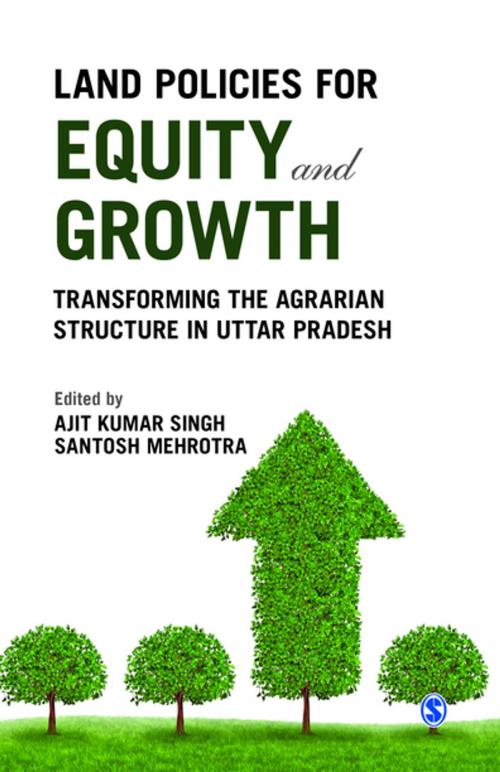Land Policies for Equity and Growth
Transforming the Agrarian Structure in Uttar Pradesh
Business & Finance| Author: | ISBN: | 9789351504139 | |
| Publisher: | SAGE Publications | Publication: | June 26, 2014 |
| Imprint: | Sage Publications Pvt. Ltd | Language: | English |
| Author: | |
| ISBN: | 9789351504139 |
| Publisher: | SAGE Publications |
| Publication: | June 26, 2014 |
| Imprint: | Sage Publications Pvt. Ltd |
| Language: | English |
Land Policies for Equity and Growth is perhaps the first book of its kind on land issues, including land reforms, in one of India’s most populous states—Uttar Pradesh. In its 18 chapters—authored by scholars who have spent several decades researching land issues in UP—the book sets out land policies to promote agricultural growth with equity in a state that accounts for a very significant share of the rural poor of India.
The book discusses both old and new issues. While it examines the historical consequences of the Zamindari Abolition Act (1950) and the Land Ceiling Legislations (1960 and 1972) in UP, it also looks at new, emerging issues in land and agrarian relations, like land use policy (or rather its absence) in the state. It also discusses the need for modernising land records, computerising them and, most importantly, ensuring titling on the basis of ground-truthing actual landownership.
This book attempts to relate land policy issues to the policy discourse in UP. It is based upon an analysis of well known as well as new data sources. The authors examine data from old National Sample Surveys as well as the most recent one (2009–2010). The authors also carried out primary surveys in the four well-defined agro-climatic zones of UP, the findings of which are reported in the book.
Land Policies for Equity and Growth is perhaps the first book of its kind on land issues, including land reforms, in one of India’s most populous states—Uttar Pradesh. In its 18 chapters—authored by scholars who have spent several decades researching land issues in UP—the book sets out land policies to promote agricultural growth with equity in a state that accounts for a very significant share of the rural poor of India.
The book discusses both old and new issues. While it examines the historical consequences of the Zamindari Abolition Act (1950) and the Land Ceiling Legislations (1960 and 1972) in UP, it also looks at new, emerging issues in land and agrarian relations, like land use policy (or rather its absence) in the state. It also discusses the need for modernising land records, computerising them and, most importantly, ensuring titling on the basis of ground-truthing actual landownership.
This book attempts to relate land policy issues to the policy discourse in UP. It is based upon an analysis of well known as well as new data sources. The authors examine data from old National Sample Surveys as well as the most recent one (2009–2010). The authors also carried out primary surveys in the four well-defined agro-climatic zones of UP, the findings of which are reported in the book.















